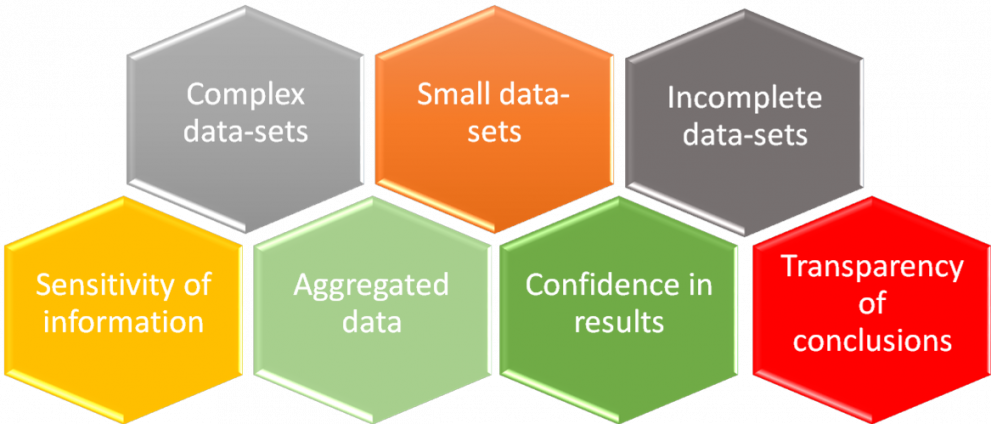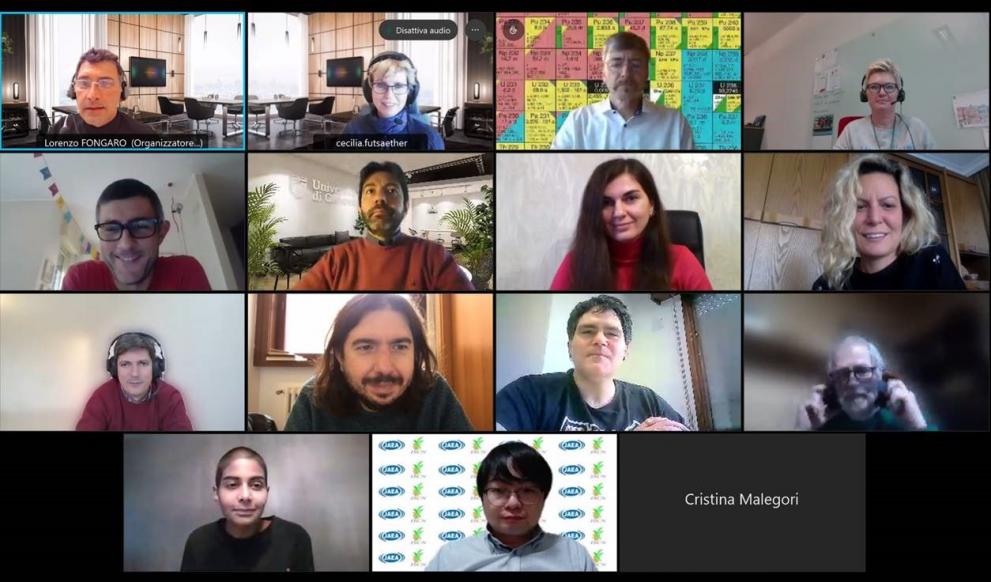
Activities related to Artificial Intelligence in the JRC (EURATOM) started already in the late 1980’s when an “Expert System” was developed to optimize the analytical parameters for safeguards samples at JRC Karlsruhe.
More recently, AI methods (supervised techniques) were used for the evaluation of spectral information in order to help identify the origin of nuclear material found out of regulatory control, i.e. for nuclear forensic purposes. Current activities focus on analysis more complex data such as image texture or hyperspectral information for classification of uranium ore concentrate samples. This was part of an exploratory research project (IDENTICLASS).
In the framework of the JRC’s Enlargement and Integration program, Dir G organized in November 2021 jointly with the Norwegian University of Life Sciences a workshop on the "Application of Artificial Intelligence to Nuclear Forensics".

The workshop with this very focused topic brought together experts from two different communities, which haven’t been exposed to each other very much: nuclear forensic scientists and experts in the field of Artificial Intelligence. The event gathered relevant experts from EU Member States, from Norway, Ukraine, Turkey and Japan affiliated with universities or research organizations.
Scene setting presentations and topical lectures and examples of applications provided the framework for a round table discussion which resulted in a clear description for a path forward. The latter is captured in five recommendations:
- Promote the use of distributed learning models to enable handling of sensitive data
- Establish an interface between subject matter experts and feature/parameter selection (by AI) to increase transparency of conclusions
- Develop multi-block data analysis for comprehensive description of nuclear material using information from various measurement techniques
- Examine the application of transfer learning
- Investigate the usefulness of synthetic data for training, re-training and validating models
The findings of the workshop will inspire the work program of the JRC and of nuclear forensic community in general. Moreover, they will serve as input for bi- or multi-lateral cooperation of the JRC.
As the discussions have shown, the area of nuclear forensics can significantly benefit from applying AI methodologies.
Details
- Publication date
- 15 November 2021
